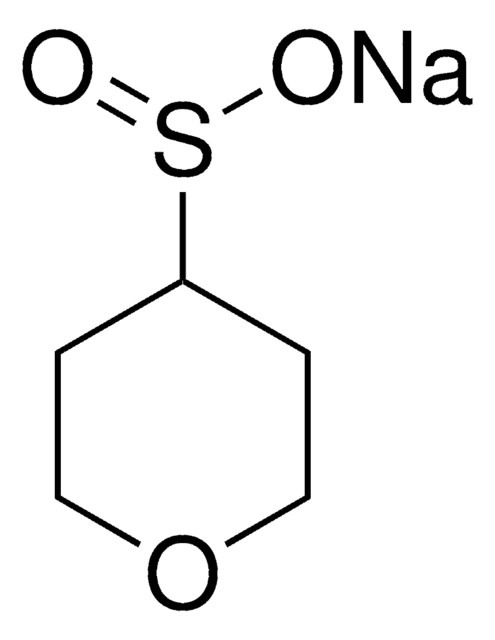900755
SLAP TA
95%
Synonyme(s) :
3-(((Trimethylsilyl)methyl)thio)propan-1-amine
About This Item
Produits recommandés
Niveau de qualité
Pureté
95%
Forme
liquid
Densité
0.90452
Groupe fonctionnel
amine
thioether
Température de stockage
2-8°C
Catégories apparentées
Application
Autres remarques
- Technology Spotlight: SLAP Reagents for Piperazine Synthesis
- Silicon Amine Reagents for the Photocatalytic Synthesis of Piperazines from Aldehydes and Ketones
- Lewis Acid Induced Toggle from Ir(II) to Ir(IV) Pathways in Photocatalytic Reactions: Synthesis of Thiomorpholines and Thiazepanes from Aldehydes and SLAP Reagents.
- Continuous Flow Synthesis of Morpholines and Oxazepanes with Silicon Amine Protocol (SLAP) Reagents and Lewis Acid Facilitated Photoredox Catalysis
Produit(s) apparenté(s)
Mention d'avertissement
Warning
Mentions de danger
Conseils de prudence
Classification des risques
Flam. Liq. 3
Code de la classe de stockage
3 - Flammable liquids
Classe de danger pour l'eau (WGK)
WGK 3
Point d'éclair (°F)
75.0 °F
Point d'éclair (°C)
23.89 °C
Faites votre choix parmi les versions les plus récentes :
Certificats d'analyse (COA)
Désolés, nous n'avons pas de COA pour ce produit disponible en ligne pour le moment.
Si vous avez besoin d'assistance, veuillez contacter Service Clients
Déjà en possession de ce produit ?
Retrouvez la documentation relative aux produits que vous avez récemment achetés dans la Bibliothèque de documents.
Protocoles
The expanding class of SLAP reagents provides access to saturated N-heterocycles and aliphatic aldehydes and ketones without additional reagents or the generation of toxic byproducts.
The expanding class of SLAP reagents provides access to saturated N-heterocycles and aliphatic aldehydes and ketones without additional reagents or the generation of toxic byproducts.
The expanding class of SLAP reagents provides access to saturated N-heterocycles and aliphatic aldehydes and ketones without additional reagents or the generation of toxic byproducts.
The expanding class of SLAP reagents provides access to saturated N-heterocycles and aliphatic aldehydes and ketones without additional reagents or the generation of toxic byproducts.
Notre équipe de scientifiques dispose d'une expérience dans tous les secteurs de la recherche, notamment en sciences de la vie, science des matériaux, synthèse chimique, chromatographie, analyse et dans de nombreux autres domaines..
Contacter notre Service technique









